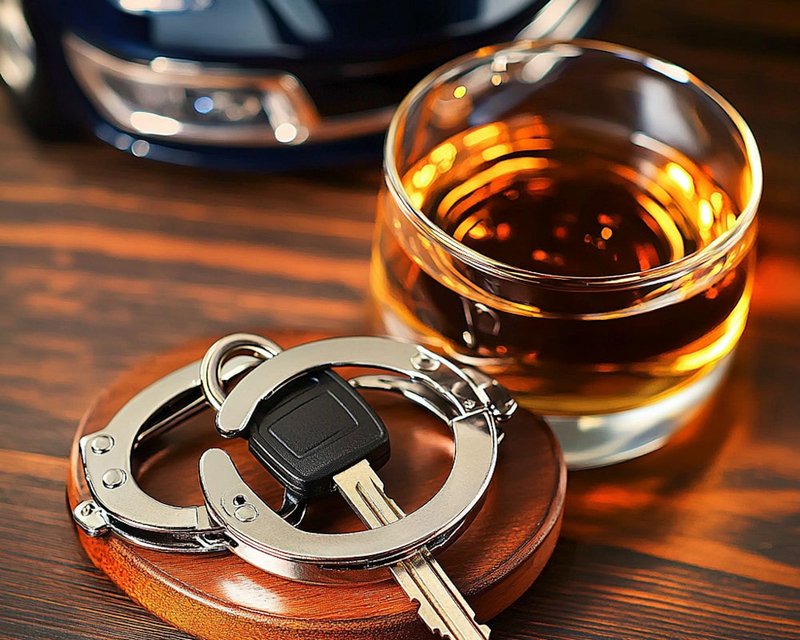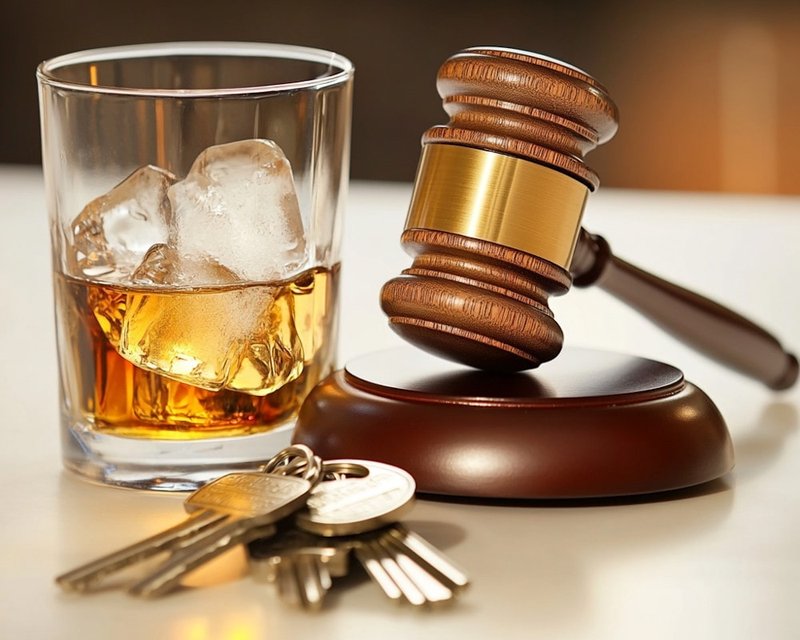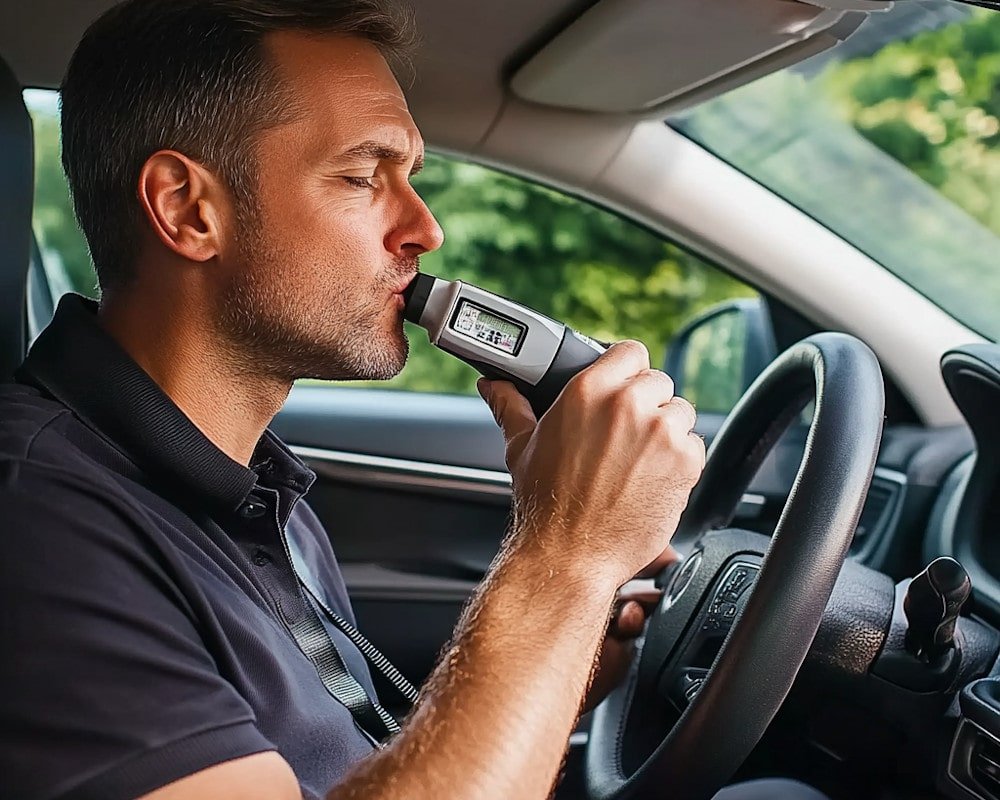Key Takeaways
-
DUI Arrests in Canada
: In
2023, 39,021 drivers
were charged with DUI, with
15,503 arrests in Ontario
.
-
First-Time DUI Consequences
: Penalties include fines, license suspensions, and mandatory programs.
-
Repeat DUI Offenders
: Face stricter penalties, including jail time and permanent license suspension.
-
Types of DUI Charges
: Includes impaired driving, over 80-plus mg, refusing a breath test, and more.
-
Legal Defence
: Skilled DUI lawyers like
Jeff Mass and Robbie Tsang
can help mitigate charges and improve case outcomes.
So, you’ve been arrested for driving under the influence (DUI) of alcohol or drugs in Canada. Sure, you didn’t mean to — it was an accident.
Perhaps you didn’t realize that you’d been drinking doubles and assumed that enough time had passed to lower your blood alcohol content to legal levels. Maybe you knew you’d had too much to drink, so you were sleeping it off in the driver’s seat of your car, only to be awoken by police and arrested for something called “care and control” DUI. Were you stopped by a police roadside sobriety checkpoint and refused to provide a breath sample into the approved screening device? Or did you have no idea that prescription medicine — including medical cannabis — is covered by DUI by drug laws?
Even if you weren’t recently arrested for DUI, perhaps you’re reading this because you recently made the mistake of driving while impaired and are wondering what might have happened had Ontario police caught you.
Well, you are in the right place because this is your comprehensive guide to understanding DUI charges in Canada (and a good place to start securing expert legal DUI defence should you need it). Let’s begin with a big-picture view of DUI charges by checking out some statistics. According to the latest Statistics Canada data, Canadian
police charged 39,021 motorists with DUI in 2023
, of which almost half — 15,503 — were arrested in Ontario.
These numbers suggest that Canadians just aren’t getting the public service message that driving while impaired is dangerous and that the legal consequences of a DUI conviction are severe.
On a more positive note, Statistics Canada data on
court decisions
suggests that less than 40% of those arrested for DUI are convicted. Of the 41,873 DUI cases heard by Canadian courts in the 2022/2023 reporting period, 16,180 resulted in a conviction. Almost 25,000 cases resulted in stays, withdrawals, dismissals, discharges, extrajudicial measures, or other favourable outcomes for the defendants, while 538 defendants secured an acquittal. We would suggest that this highlights the importance of securing the services of
skilled criminal defence DUI lawyers
, like the experts of the Greater Toronto Area’s Mass Tsang law firm.
DUI Arrests and Convictions in Canada
|
Year
|
Total DUI Arrests
|
Ontario DUI Arrests
|
Convictions
|
Withdrawn/Dismissed Cases
|
|
2022
|
38,252
|
14,821
|
15,901
|
23,400
|
|
2023
|
39,021
|
15,503
|
16,180
|
25,000
|
Of course, if you don’t drink and drive and don’t consume drugs and drive, you’re not going to have to worry about that, are you? But keep reading, as the following information should help reinforce the notion that dealing with a DUI is a painful experience on many levels. For example, consider the potential consequences of a first-time DUI.
What are the penalties and legal consequences of a DUI in Canada?
DUI penalties vary based on factors like first-time or repeat offence. First-time offenders face fines, license suspensions, and mandatory education programs. Repeat offences can result in jail time and permanent license revocation. Consulting an experienced DUI lawyer can improve legal outcomes.
First-Time DUI Offence Consequences

A first-time DUI is painful even if you ultimately manage to avoid conviction.
Jeff Mass
, Criminal Defence Lawyer at MassTsang
explains, "Many clients are unaware that penalties begin immediately, including license suspensions and hefty fines."
To start with, the arrest process itself — with flashing blue lights, handcuffs, police interrogation, and other annoyances — is disjointing and often embarrassing. Your vehicle will be towed at your expense, and you must find alternative transportation once the police release you. You face an immediate 90-day administrative driver’s license suspension that remains in effect even if you somehow get the charges dropped during this period. It’s also going to cost you $281 to reinstate your license once the period is over.
Thus, even absent a DUI conviction, an impaired driving arrest comes with painful consequences. And there’s no recourse to reverse the loss of license and financial damages that come with a DUI arrest, even if you are innocent of the charges.
You also face the aggravation of attending court hearings and should probably consider hiring a competent criminal defence DUI lawyer. Yes, it costs money, but if a skilled lawyer can help prevent a DUI conviction, you will not experience its numerous negative consequences, which include for a first-time offence:
-
$1,000 fine
-
One-year driver’s license suspension
-
Mandatory enrollment in Ontario’s “
Back on Track
” education/treatment program, including a $894 fee.
-
License reinstatement requiring enrollment in the
Ignition Interlock
program, with fees of $1,000 and up.
-
“High Risk” annual insurance premiums ranging from $2,000 to $10,000 (depending on vehicle make and other factors) that can persist for up to six years.
-
Another $281 for
driver’s license reinstatement
.
-
A permanent criminal record that can jeopardize employment, education, and travel endeavors.
-
Alternative transportation costs during license suspension.
First-Time DUI Penalties Visual Breakdown
|
Penalty
|
Cost/Duration
|
|
Fine
|
$1,000
|
|
License Suspension
|
1 Year
|
|
‘Back on Track’ Program
|
$894 Fee
|
|
Ignition Interlock Program
|
$1,000+
|
|
Insurance Premium Increase
|
$2,000-$10,000 annually
|
|
Criminal Record
|
Permanent
|
|
License Reinstatement Fee
|
$281
|
Second, Third, and Subsequent (repeat) DUI Conviction Penalties
Robbie Tsang
, DUI lawyer at MassTsang
notes, "Repeat DUI offenders face significantly harsher consequences, including mandatory jail time and longer license suspensions."
If you’re convicted for a second-time DUI offence, you face the same penalties as your first DUI, plus:
-
Mandatory minimum 30-day jail term.
-
Three-year driver’s license suspension.
-
Larger fines of up to $5,000 at the judge’s discretion.
-
Extended ignition interlock period upon license reinstatement.
-
Court-ordered probation.
Third and subsequent DUI convictions carry similar consequences as a second-time DUI conviction but with a permanent license suspension and mandatory minimum three-month jail term (two-year maximum).
Repeat DUI Offence Penalties
|
Offence
|
Jail Time
|
License Suspension
|
Fine
|
|
Second DUI
|
30 Days
|
3 Years
|
Up to $5,000
|
|
Third DUI
|
3 Months
|
Permanent
|
Judge’s Discretion
|
Aggravating DUI Circumstances Enhance Legal Penalties
The above-referenced penalties are applied to those convicted of basic DUI. The Canadian Criminal Code significantly enhances penalties if your impaired driving behaviour harms or poses a threat to other people. Aggravating factors that result in harsher sentencing guidelines for a DUI conviction include:
-
Causing death.
-
Causing bodily harm.
-
Excessive blood alcohol concentrations.
-
Racing other vehicles.
-
Operating a large motor vehicle.
-
Having passengers under the age of 16 in the vehicle.
-
Operating impaired as a commercial driver.
-
Unlawfully operating a vehicle (i.e., driving while license revoked, etc.).
In many such aggravating cases — especially once involving death or bodily harm — judges are inclined to include significant prison time in their sentencing decisions.
Aggravating Factors and Penalties
|
Factor
|
Additional Penalty
|
|
Causing Death
|
Lengthy Prison Sentence
|
|
High Blood Alcohol Levels
|
Increased Fines & Jail Time
|
|
Racing or Commercial Vehicle Use
|
Harsher Sentencing Guidelines
|
Types of DUI
"Many drivers are surprised to learn there are multiple types of DUI charges," says
Jeff Mass
. "Care and control laws, for example, can result in charges even if you're not actively driving."
There are several types of DUI, which police and the courts categorize as thus:
-
Impaired Driving
— Physical evidence and police observation determined that the driver’s ability to safely operate a motor vehicle was impaired by drugs or alcohol.
-
Over 80-Plus mg
— Breathalyzer readings that prove BAC levels exceed 80 mg of alcohol per 100 ml of blood.
-
Refusing to Provide a Breath Sample
— Carries the same penalties as any other DUI.
-
Care and Control
— The impaired driver was in a position within the vehicle in which they could easily put it into motion and endanger the public.
-
Underage Impaired Driving
— Zero tolerance for any level of impairment by those under the age of 21.
-
Impaired Driving by Drugs
— DUI charges based on a 12-step
drug recognition expert (DRE) evaluation
, approved roadside drug screening equipment, or blood sampling.

Types of DUI Charges in Canada (Visual presentation)
|
DUI Type
|
Definition
|
|
Impaired Driving
|
Police observe impairment in driving ability
|
|
Over 80-plus mg
|
BAC exceeds 80 mg per 100 ml of blood
|
|
Refusal to Provide Sample
|
Refusing a breath test leads to automatic conviction
|
|
Care and Control
|
Driver is in a position to operate the vehicle while impaired
|
|
Underage DUI
|
Zero tolerance for drivers under 21
|
Evidentiary Matters
to gain a DUI conviction, Crown prosecutors must prove “beyond a reasonable doubt” that:
-
You operated a motor vehicle while impaired.
-
You had “care and control” of a motor vehicle while impaired, as evidenced by impairment and ability and physical proximity to put the vehicle in motion.
-
You purposefully refused a breath or blood sample demand after driving a motor vehicle while impaired.
“Beyond a
reasonable doubt
” is a crucial threshold prosecutors must meet to gain a DUI conviction. To mount an effective defence, experienced criminal defence DUI lawyers strive to expose flaws in the Crown’s evidence to secure a favourable outcome, either pretrial or at trial. The police can and do make mistakes, roadside testing devices and breathalyzers can be faulty, and actions taken by the driver and/or the police before, during, and after the arrest may contradict the evidence. Additionally, if a DUI lawyer can prove that police failed to follow proper procedures or violated the driver’s Charter Rights, the judge may nullify relevant evidence or dismiss the charges depending on the severity of the violation.
Potential DUI Outcomes
Not all DUI charges lead to conviction.
Robbie Tsang
explains, "A well-planned defence can significantly improve the chances of reduced or dismissed charges."
As Statistics Canada data suggests, an impaired driving arrest does not always lead to a conviction. In fact, a robust criminal defence can increase the likelihood of securing a more favourable outcome, such as:
-
Withdrawn Charges
— Crown prosecutors drop the charges due to evidence flaws or weaknesses usually exposed by the defence.
-
Dismissed charges
— The judge dismisses the charges due to Charter Rights violations or flaws in the evidence.
-
Reduced Charges
— Negotiated agreement to plead guilty to a lesser charge like reckless driving.
-
Acquittal
— Found not guilty by the court.
Secure Superior DUI Defence in Toronto with Mass Tsang
With decades of success defending Canadians against DUI charges in the Greater Toronto Area, secure the best possible outcome in your case by consulting with the criminal defence DUI lawyers at Mass Tsang.
"The sooner you seek legal counsel, the better your defence options," advises
Jeff Mass
.
If you or a loved one has been arrested for DUI,
contact us
today for a free consultation.




